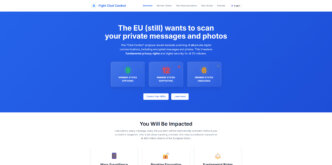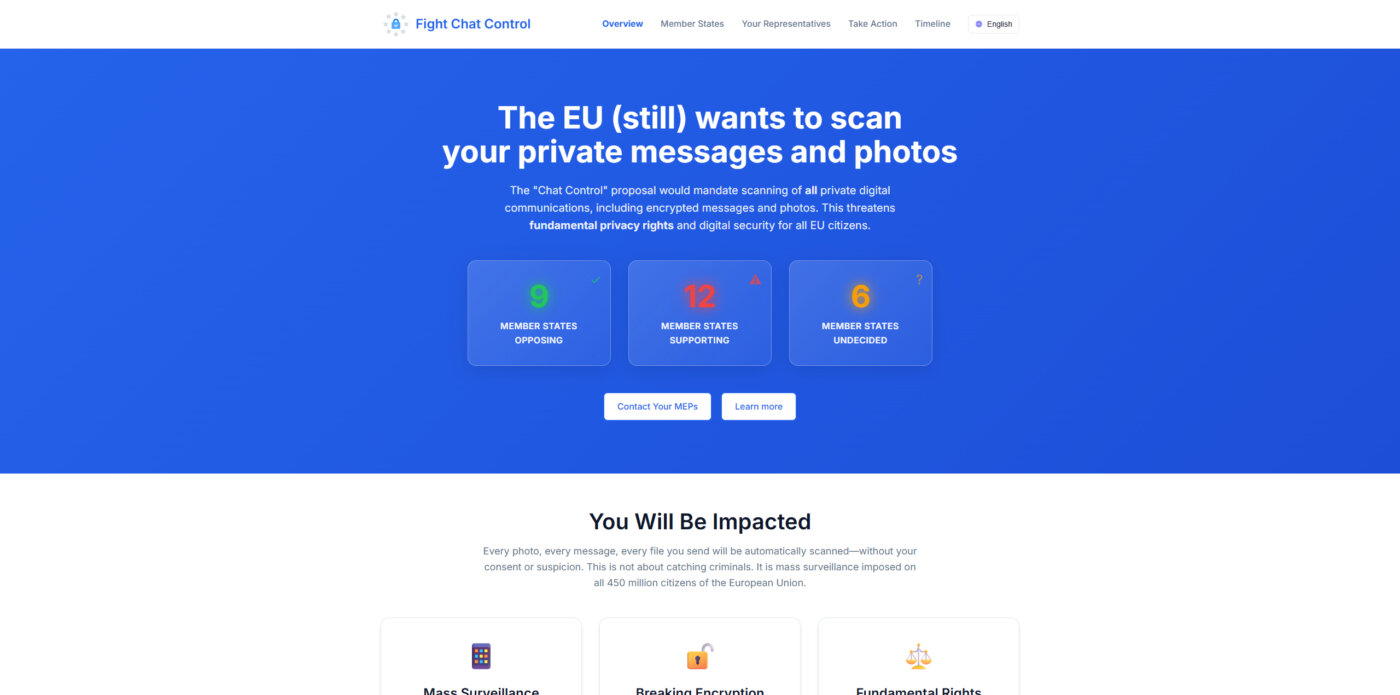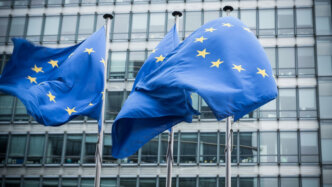The European Parliament has been flooded with emails from a citizen-driven campaign opposing a proposed “Chat Control” regulation, according to the founder of FightChatControl.eu. The website, created by a Danish programmer, enables users to generate a templated message and send it to Members of the European Parliament (MEPs) via their own email clients with just a single click.
According to the campaign’s creator, who spoke to Politico anonymously, the site has already attracted nearly 2.5 million unique visitors. While the site itself does not send emails, it is estimated that “millions” of emails have been sent through it, although the precise figure is unknown. A Swedish MEP, Evin Incir, reported that she receives hundreds of such messages daily. Diplomats and officials in some EU member states have similarly confirmed receiving large volumes of correspondence.
Because the messages are sent from users’ own email accounts, FightChatControl.eu does not retain data about how many were dispatched. Nonetheless, the deluge of messages is seen as a driving force in making the “Chat Control” proposal a topic of widespread public debate, especially in countries where it previously received little attention.
What is the “Chat Control” proposal?
The regulation under consideration is formally part of the EU’s broader effort to combat child sexual abuse material (CSAM) online. Its controversial element lies in requiring platforms to scan private digital communications—including encrypted messages and photos—for illegal content. Critics argue this amounts to mass surveillance, weakens end-to-end encryption, and risks misidentifying innocent content.
In a question to the European Commission, MEP Emmanouil Fragkos emphasized that the proposal’s design raises serious concerns over compliance with Article 7 of the EU Charter of Fundamental Rights, citing threats to data security and the possibility of false positives.
Political fallout and timing
The pressure generated by the campaign appears to have influenced the political landscape. An anonymous diplomat cited to Politico noted that some member states have become more cautious in endorsing the regulation, in part due to the volume of public backlash.
Denmark, currently holding the EU presidency, plans to push the proposal for a vote among EU member states on 14 October 2025. If approved, formal negotiations would follow between the European Commission and Parliament.
Some governments are already shifting their positions. Germany, for instance, has recently signaled that it does not endorse the proposal in its current form.
Responses and criticism
The campaign has drawn criticism as well. Lena Düpont, a German MEP, argued that the mass emails do not constitute democratic dialogue. Others have raised concerns that the flood of messages is overshadowing more conventional advocacy efforts—some organizations say their emails now trigger automated replies or go unanswered.
Meanwhile, digital rights organizations such as EDRi credit the campaign with elevating the “Chat Control” proposal to a public priority in many EU countries, where it had previously received little attention.







